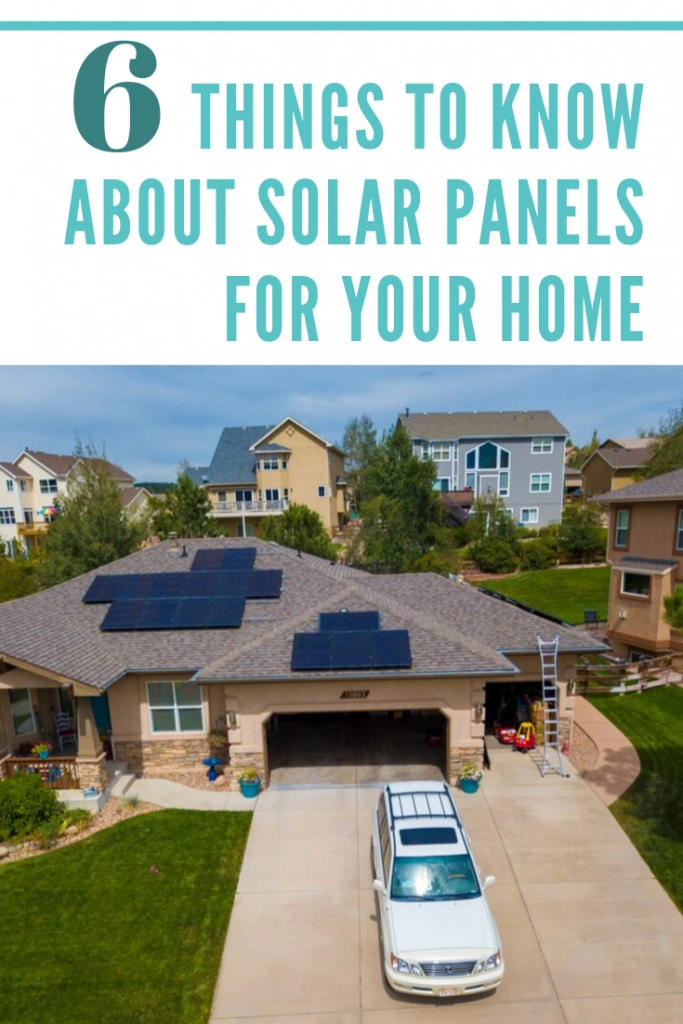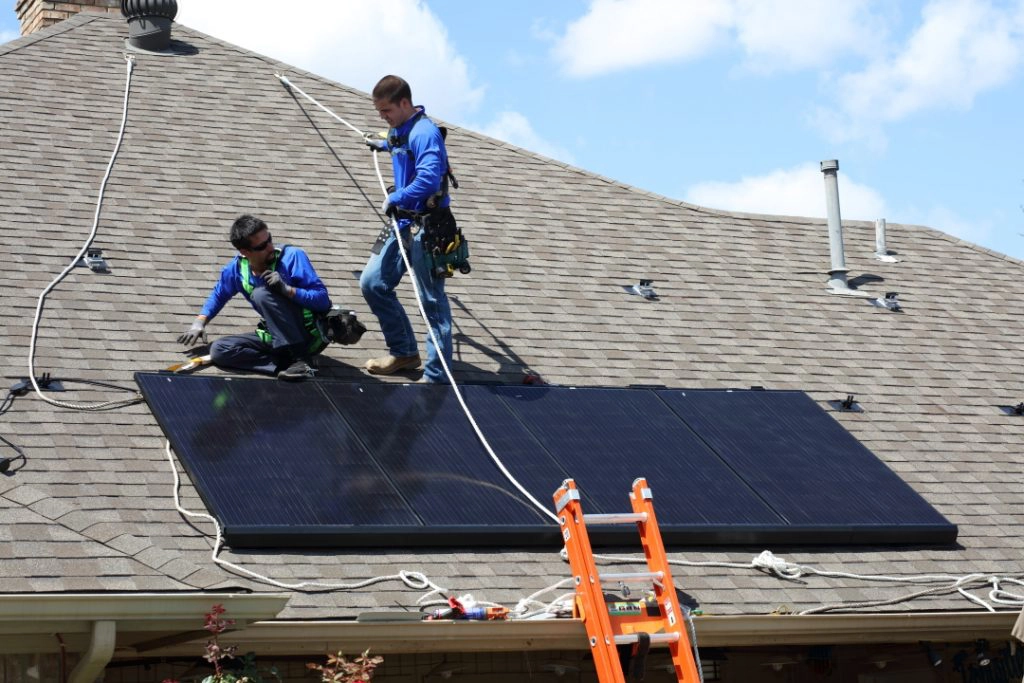When we bought our home a few years ago we started talking about how one day we want to add solar panels. A lot of the homes in our area already have solar panels or are slowly upgrading to solar power and with so many sunny days in Colorado, solar power makes sense.
Since solar power is new to me I wanted to learn a more about it and I’ve teamed up with Denver Solar Co-op and Sunfinity Renewable Energy to learn more about solar power and share some of that info with you. If you’re also interested in learning more about how your home could benefit from solar power Sunfinity Renewable Energy and the Denver Solar Co-op are holding FREE public information sessions over the next couple weeks where they’ll be sharing everything you need to know about using solar energy for your home. You can visit www.solarunitedneighbors.org/denver for an updated list of events and to RSVP.
The solar co-op is free to join and joining the co-op is not a commitment to purchase panels. Sunfinity Renewable Energy will provide each co-op member with an individualized proposal designed for the specific home and based on the group rate. By going solar as a group and choosing a single installer, members can save on the cost of going solar and have the support of fellow group participants and solar experts at Solar United Neighbors.
6 Things to Know About Solar Panels
1.Solar can be installed on almost all types of roofs; the only roofs that don’t qualify are wood shake roofs. The most common type of roofing material is composite shake roof, and solar can definitely be installed over that. Since your solar system can last for decades, your roof should be in good condition, but it doesn’t need to be a new roof.
2. The more south-facing your roof, the better – that is the most direct sunlight, but a west or east-facing roof can still capture enough sunlight to be cost-effective. A north-facing roof won’t capture enough sun to make it worth the cost. If your roof is shaded by tall trees, that will reduce the available space for solar panel installation.
3. When you have solar, any “excess power” is fed back to the grid – for example, if you are not home from 8-5 during the week, that power goes to the electric grid. At night, when the sun isn’t shining, you’ll be pulling power FROM the grid. However, the excess power that you contributed is credited to your account – so it can offset the cost of any electricity that you pull from the grid. This is called net metering. Every month, your electric company will show you how much power you produced, how much you used from the grid, and whether or not there is a $$ difference. (TIP: solar panels can produce power even on a cloudy day! They won’t produce as much as they would under full sun, but they are still effective.)
With Sunfinity, every homeowner gets access to an online monitoring system, so you can tell every day how much power your panels are producing. There are several ways to run the reports, so you can see monthly/annual usage and more.
4. You can get rebates from the federal government for 30% of the total cost of your solar system and it can be combined with any local, state, or utility rebates. However, after 2019 the rebate amount will reduce. Learn more about rebates in this handy video.
5. You can buy batteries that will store your excess power at your house, but until recently, they were cost-prohibitive. However, this is a growing area, and prices are coming down. The good news is – you can add a battery at any point after you install solar. They don’t have to be bought together and they can be a great addition to your solar system.
6. Solar panels will last for decades! Sunfinity always stresses that they should be added to your homeowner’s insurance – it’s a nominal cost, but if the panels should be damaged due to weather, insurance will replace them.
About Sunfinity & the Denver Solar Co-Op
Solar United Neighbors supports solar co-ops across the country. These co-ops are a part of the organization’s mission to create a new energy system with rooftop solar as the cornerstone. Solar United Neighbors holds events and education programs to help people become informed solar consumers, maximize the value of their solar investment and advocate for fair solar policies. Those interested in supporting the organizations’ work and becoming a member can do so at their website. The Denver co-op is open to new participants until November 8th.
Sunfinity Renewable Energy (www.sunfinityre.com) is headquartered in Dallas with full-service operations throughout Arizona, California, Colorado, Oklahoma and Texas and active expansion into other Southwest, South Central and Northeast regions of the U.S. Sunfinity Renewable Energy offers complete residential, C&I (commercial and industrial), and utility-scale solar systems.



Ajay Verma
Wednesday 27th of November 2019
I liked the idea of battery and power grid. It will help to save a lot of electricity. The bill will also reduce considerably. Installing a solar panel is a very good idea. Thank you for posting this article and giving us insights about the advantages of solar panels.